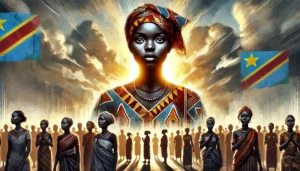We agree with UN Women that the AC ( Agreed Conclusions) established value added commitments to effectively implement and monitor the progress of the gender equality compact contained in the entire 2030 Agenda in conjunction with BDPfA. However, mainstreaming gender equality, women’s and girls’ human rights and the empowerment of women in the entire 2030 Agenda is not enough to achieve the transformative changes that the 2030 Agenda must ensure. We need to work towards the universal realization of all women’s and girls’ human rights as ends in themselves rather then just a means to further economic interests that perpetuate poverty and inequality. There is a need to reform structures that produce and compound gender inequality over time and across generations. In other words we need strategies to tackle the root causes of women’s and girls’ human rights violations and gender inequality. The AC do not include any such commitments.
The most important commitments adopted by the Commission are the following:
Essentiality of Gender equality and women’s empowerment on SDGs and Beijing Platform for Action as foundational basis:
The AC recognize the essentiality of gender equality and women’s empowerment and progress on all SDGs and targets. The BDPfA and the outcome documents of its reviews and the outcomes of relevant major UN conferences have laid a solid foundation for SD.
Women’s human rights affirmations and major role of civil society and feminist and youth led organizations:
The AC strongly prioritize the human rights of women and girls in the achievement of GEWE and SD implementations of the 2030 Agenda. CEDAW and CRC provide an international legal framework and comprehensive set of measures for their realization.
The AC recognize the major contributions made by civil society including feminist groups, women’s, community based and youth led organizations.
Role of a socially responsible and accountable private sector:
The AC call on a socially responsible and accountable private sector to support the full, effective and accelerated implementation of BDPfA and 2030 Agenda.
Men and boys as allies. Changing social norms and enyouthing of CSW and the women’s movement:
Recognition of men and boys as allies in the elimination of all forms of discrimination and violence against women as well as in the full, effective and accelerated implementation of BDPfA and gender responsive implementation of 2030 Agenda. The change of social norms was emphasized. There was an effort of enyouthing of CSW and of ensuring a gender just and youth accountable implementation of the entire 2030 Agenda. This was reflected in the references to girls throughout the text and by identifying youth led organizations as key actors and stakeholders for an open, inclusive and transparent engagement.
The implementation road map of the gender compact in the SDGs:
The AC set out a road map for the why, what and how of the implementation of all key SDGs for gender equality and women’s empowerment.
The emphasis is that all SDGs have to be implemented in a gender responsive way. While there is no mention of SDG 5 significant commitments are made and actions outlined on all 6 SDG targets and 3 means of implementation.
Elimination of violence against women and girls:
The AC call upon all stakeholders to adopt, review and ensure the accelerated and effective implementation of laws that criminalize violence against women and girls as well as comprehensive, multidisciplinary and gender – sensitive, preventive, protective and prosecutorial measures and services.
Valuing and recognizing unpaid care:
The AC call upon MS and other relevant stakeholders to value, recognize, reduce and redistribute unpaid care and domestic work, by promoting shared responsibility by women and men and provision of essential services and social protection.
Women’s equal participation and leadership:
The AC recognize the relevance of women’s effective and meaningful participation and need for equal opportunities for leadership at all levels of decision making in public and private sectors and in all areas of sustainable development.
Universal access to sexual and reproductive rights and health:
A robust, comprehensive and progressive commitment was secured on universal access to sexual and reproductive health and reproductive rights on the basis of the text of the Agreed Conclusions of CSW58.
Holistic women’s economic empowerment agenda:
The AC recognize and set out a holistic approach that women’s equal economic rights, economic empowerment and independence are essential to the achievement of the 2030 Agenda for sustainable development.
Interconnectedness of gender equality and women’s empowerment with other SD goals:
The AC come out strongly in making the interconnectedness between gender equality, women’s empowerment and poverty eradication, the right to education, water and sanitation, climate change, SCR1325, humanitarian and women’s mobility, food security.
The enabling environment:
The AC gave a boost to national gender mechanisms for gender equality by committing to strengthening their authority, capacity and funding and promoting their visibility and support for them.
Transformative financing of gender equality and sustainable development:
The Commission committed to significantly increased investment to close the gender resource gap by mobilizing funds from all sources, domestic and international.
Gender responsive data, indicators, monitoring, follow up and review:
The Commission stressed the need for a gender responsive data collection approach in national follow up and review taking into account where applicable the agreed global indicators framework and strengthen national statistical capacity.
Family and Gender Equality:
The Commission stressed the need for elaborating and implementing family policies aimed at achieving gender equality and women’s empowerment and at enhancing the full participation of women in society.


